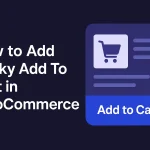Updated: January 27, 2026
10 Best Software for Multichannel Selling in 2026 (Complete Guide)
If you sell across Amazon, eBay, Etsy, Walmart, and your own WooCommerce site, you need the right software for multichannel selling. The right platform syncs inventory, centralizes orders, and prevents overselling.
This guide covers the top multichannel selling tools in 2026, with quick picks, comparison tables, and how to choose the best system for your business.
Quick Picks (Top 3)
- Sellbrite – Best overall for marketplace integrations.
- Linnworks – Best for advanced inventory and fulfillment control.
- WooCommerce + Marketplace Connectors – Best for WordPress-first sellers.
What Multichannel Selling Software Should Do
- Inventory sync: Prevents overselling across channels.
- Centralized orders: One dashboard for all marketplaces.
- Automated listings: Push product data to multiple channels.
- Reporting: Sales and profit tracking across channels.
- Integrations: Connect with shipping, accounting, and ERP tools.
1) Sellbrite
Sellbrite is a popular multichannel platform that connects major marketplaces and centralizes inventory. It is known for ease of use and fast setup.
- Pros: Easy interface, strong marketplace integrations
- Cons: Advanced automation may require higher tiers
- Best for: Small to mid-size sellers who want simplicity
2) Linnworks
Linnworks is a powerful platform for sellers who need deep inventory and fulfillment control. It is often used by larger ecommerce operations.
- Pros: Advanced inventory tools, strong reporting
- Cons: More complex setup
- Best for: High-volume sellers with complex operations
3) WooCommerce + Marketplace Connectors
WooCommerce can act as the central hub when paired with marketplace plugins (Amazon, eBay, Etsy, Walmart). This is ideal for WordPress-first businesses.
- Pros: Full ownership of store, flexible integrations
- Cons: Requires plugin stack management
- Best for: WordPress sellers who want control and customization
4) ChannelAdvisor
ChannelAdvisor is an enterprise multichannel platform with strong marketplace and advertising integrations.
- Pros: Enterprise-grade marketplace control
- Cons: Expensive for small sellers
- Best for: Large brands and enterprises
5) Shoppingfeed
Shoppingfeed helps list and manage products across marketplaces and ad channels. It is useful for sellers who also run shopping ads.
- Pros: Strong feed management, ad channel support
- Cons: Setup can be complex
- Best for: Sellers who combine marketplaces with shopping ads
6) CedCommerce
CedCommerce provides connectors for many marketplaces. It is often used by WooCommerce and Shopify sellers who want direct marketplace syncing.
- Pros: Broad marketplace coverage
- Cons: Features vary by connector
- Best for: Sellers targeting specific marketplaces
7) LitCommerce
LitCommerce is a multichannel tool designed for small and medium sellers. It supports key marketplaces and offers a simpler interface.
- Pros: Easy setup, affordable plans
- Cons: Less advanced automation
- Best for: Growing sellers who need basic multichannel syncing
8) Zoho Inventory
Zoho Inventory helps manage stock across channels and integrates with multiple sales platforms.
- Pros: Strong inventory management, integrates with Zoho ecosystem
- Cons: Marketplace coverage varies
- Best for: Businesses already using Zoho tools
9) Shopify (Multichannel + Marketplace Apps)
Shopify supports multichannel selling through apps and built-in integrations. It is useful if you want a hosted solution with marketplace support.
- Pros: Easy to launch, app ecosystem
- Cons: Transaction fees, less control than WooCommerce
- Best for: Sellers who want a hosted, low-maintenance platform
10) BigCommerce (Marketplace Integrations)
BigCommerce offers marketplace integrations through apps and partners. It is a good option for businesses that want a SaaS platform with scalability.
- Pros: Scalable, strong performance
- Cons: Less flexibility than open-source platforms
- Best for: Brands that want SaaS stability with multichannel support
Comparison Table
| Software | Best For | Strengths | Limitations |
|---|---|---|---|
| Sellbrite | General sellers | Easy setup | Fewer advanced features |
| Linnworks | High-volume sellers | Advanced inventory | Complex setup |
| WooCommerce + connectors | WordPress-first | Full control | Plugin management |
| ChannelAdvisor | Enterprises | Enterprise marketplace tools | High cost |
| Shoppingfeed | Ads + marketplaces | Feed management | Setup complexity |
How to Choose the Right Multichannel Software
- Small sellers: Sellbrite or LitCommerce are great starting points.
- WooCommerce stores: Use marketplace connectors to keep WordPress as the hub.
- Large sellers: Linnworks or ChannelAdvisor provide enterprise-level tools.
Best Practices for Multichannel Selling
- Centralize inventory to prevent overselling.
- Standardize product data across marketplaces.
- Use consistent pricing rules across channels.
- Track profitability per channel, not just total revenue.
FAQs
What is multichannel selling?
It means selling products across multiple platforms like Amazon, eBay, Etsy, and your own store.
Do I need multichannel software?
If you sell across more than one platform, you should use software to sync inventory and orders.
Is WooCommerce good for multichannel selling?
Yes, with the right connectors and plugins, WooCommerce can be the central hub for multichannel sales.
Which tool is best for small businesses?
Sellbrite and LitCommerce are both user-friendly and affordable for small sellers.
Can I sell services multichannel?
Yes, but services often need custom workflows. For service selling, see Woo Sell Services.
How do I avoid overselling?
Use a centralized inventory system that updates stock in real time across all channels.
Conclusion
The best software for multichannel selling depends on your scale, channels, and technical preferences. Sellbrite is ideal for most small to mid-size sellers, Linnworks is best for large operations, and WooCommerce connectors are perfect for WordPress-first businesses. Choose a tool that keeps inventory synced, orders centralized, and reporting clean as you grow.



